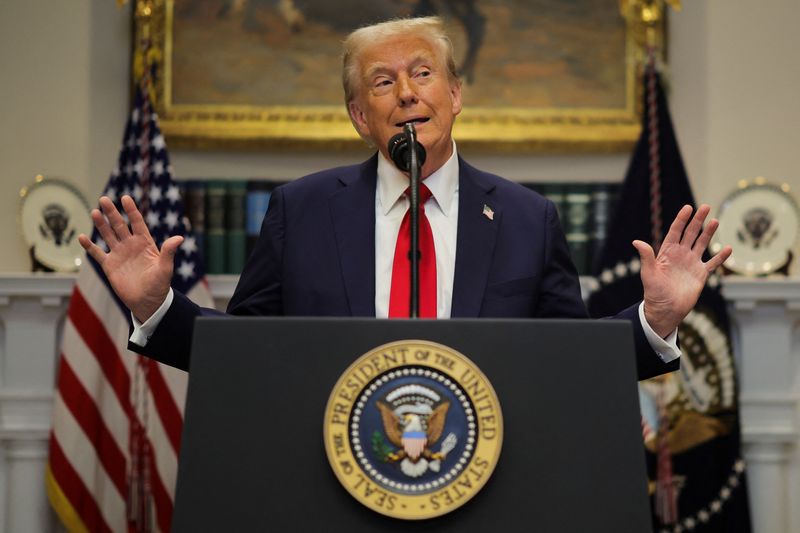Bitcoin price today: gains to $120k, near record high on U.S. regulatory cheer
Investing.com -- Bank of America analysts said in a note Monday that while the newly imposed tariffs on Canada and Mexico may be temporary, those on China are likely to be permanent due to geopolitical tensions.
The U.S. administration has implemented a 25% tariff on Canadian and Mexican imports, along with a 10% tariff on Canadian energy products.
Additionally, Chinese imports will face an extra 10% tariff. These measures eliminate the "de minimis" exemption, which previously allowed certain imports to enter the U.S. tariff-free.
In response, Canada has imposed retaliatory tariffs of 25% on $107 billion worth of U.S. goods, while Mexico has signaled its intention to retaliate but has not provided specifics. China has also promised "corresponding countermeasures."
BofA analysts believe that the 25% tariffs on Canada and Mexico may not be permanent due to three key factors.
“First, they would be disruptive for the US, and US business groups are already exerting pressure on the Trump administration. Second, they will be hard to implement due to the high degree of integration in manufacturing in North America. Lastly, we think Canada and Mexico are likely to agree to most of Trump’s terms on migration and drugs.”
The analysts view the tariffs on Canada and Mexico as a negotiating tactic rather than a long-term policy shift. “Our view continues to be that temporary tariffs and threats of tariffs on Canada and to Mexico will last until a new USMCA 2.0 is renegotiated.”
By contrast, the China tariffs are seen as part of a broader geopolitical strategy. “While there might be some reductions or exclusions, we think tariffs will largely remain in place, like those implemented in 2018.”
“Our base case remains that tariffs against China will eventually rise by 20pp on average (or double the Feb 1 increase) from the prevailing average rate of 20%,” added BofA.
